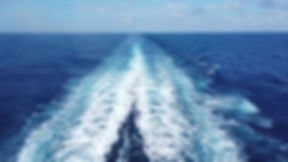
La Baille September 2000
Thirty years later, two sinkings of French submarines remain unexplained
Our comrade Hubert Foillard (EN 58) noted in a press article published this summer on the disappearance of the Minerve and the Eurydice several technical errors, some erroneous assertions, and the expression of a thesis aiming to explain "the opaque silence of the French Navy" by the necessities of arms sales. We reproduce here the letter he sent to the editor of the daily to take up each of these points.
Il m is impossible to remain unanswered after reading the article that your newspaper published in its edition of Saturday, August 26 under the signature of Mr. Jacques Isnard. I am not an "expert who thinks he can remember after the fact", but simply a 40-year-old submariner to whom the Republic has done the honor of entrusting the commands of a Daphne-type submarine, then a Narval-type, then the SNA Rubis prototype of its series, a Redoutable-type SSBN and finally the Mediterranean submarine squadron. I would add that I was on board the Eurydice submarine as second in command until shortly before it disappeared (I was second on board during General de Gaulle's "spectacular dive"), that finally I I was a trainee passenger on board the Flore on the day of the "simulated shipwreck" and that I was heard as a witness by the three successive commissions of inquiry. I note in Mr. Isnard's article a certain number of very surprising errors of a technical nature on the part of a journalist accredited as “defence” for decades, who has always had every opportunity to learn and understand the maritime environment. Didn't I myself facilitate boarding the nuclear attack submarine Saphir in 1986 when I commanded the squadron of these submarines in Toulon? There are still errors in figures (the Minerva does not rest at 1,000, but at 2,000 meters deep), dates (the Narval series predates the Daphne series by 10 years, the "misadventure" of Flora does not date from 1970 but from 1971), technique (the "schnorchel", which we call air tube, does not serve in any way to evacuate the exhaust gases while diving, but only to suck in the necessary fresh air to the smooth running of diesels), if unfortunately I did not fall under the information invented from scratch:
- during the "misadventure" of the Flore, there was never any jamming of the dive bars, any more than on any other French submarine of any type whatsoever during my long career, even if the crews are particularly trained to remedy this type of damage, as catastrophic on a submarine as a loss of elevator on an airplane and fortunately as unlikely;
- it is wrong to say that the submarine Psyché was also the victim of incidents of this type; he has, to my knowledge, never had to complain about it.
There is unfortunately more serious since Mr. Isnard mentions, with regard to the "misadventure" of the Flora, of a serious confrontation between the commander and the second. Having been constantly alongside one and the other during the "incident", I can solemnly testify that this alleged disagreement is pure and simple fabrication, the dissemination of which does not honor its author.
Let's now come to the heart of the matter: the "opaque silence" of the Navy for commercial reasons or reasons of state. Everyone knows that the Minerve disappeared without a trace and that, on the other hand, the wreck of the Eurydice could be spotted and photographed. In both cases, the commission of inquiry, for lack of material evidence, was only able to formulate hypotheses on the causes of these disasters, classify them in order of probability of occurrence and issue recommendations of all kinds (material , operational, training and training) to minimize them. The Navy then endeavored to rigorously implement all of these recommendations for its submarines and to explain and propose them to foreign navies equipped with vessels of the same type. I myself took part at the time in informing and instructing our Pakistani and South African comrades on these subjects, of which I readily admit that Mr. Isnard was not one. I doubt very much that he will one day be given the investigation reports of French and Western air and maritime disasters since 1970, even if elements of them have been disclosed by the responsible authorities during press conferences. The scientific, even judicial, rigor of an investigation requires reporting only what is certain and demonstrable from the evidence collected, and I remind you that we do not have the slightest concerning our two submarines. .
To sum up, although "the French Navy played fair", you will remain unsatisfied in 2018 because the commissions of inquiry have indeed been reduced to hypotheses on the tragic accidents of the Minerve and the Eurydice , but thanks to their work, the submarines were improved, the foreign navies were informed at the right level, and their buildings modified like ours, under their responsibility. Rest assured, Mr. Isnard, we have done our job, even if we have omitted to include you in the teams responsible for it. On the other hand, it seems to me that yours would be to report only verified, technically credible information, which is the least we can expect from a journalist from one of our major daily newspapers. writing, which would thus maintain the confidence that many soldiers who met him had in him.
Wing Vice-Admiral (2S) Hubert Foillard